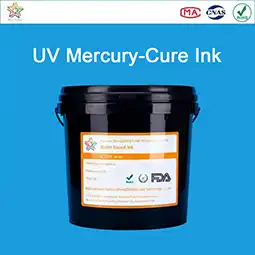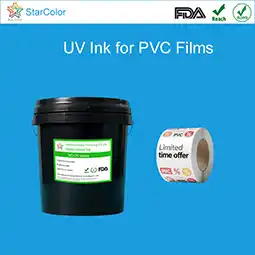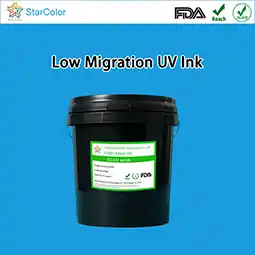What are the solvents used for offset printing ink?
Date: Aug 30 2024 From: Star Color Views:
Types of solvents for offset printing ink:
Alcohol solvent
Alcohol solvents are commonly used in offset printing ink, mainly including ethanol, isopropanol, n-butanol and so on. Such solvents have good solubility and volatility, can effectively regulate the viscosity of the ink, improve the fluidity of the ink, so that the ink can be evenly coated on the printing plate in the printing process. Alcohol solvents volatilization speed is relatively fast, may lead to air pollution in the printing workshop, so in the environmental requirements of the occasion need to be used with caution.

Ketone solvents
Ketone solvents such as cyclohexanone, acetone, methyl ethyl ketone, methyl ethyl ketone, methyl isobutyl ketone, etc., are also widely used in offset printing ink. Ketone solvents have strong dissolving ability, can effectively dissolve the resin and other solid components in the ink, improve the adhesion and gloss of the ink. Ketone solvents have a moderate drying speed, which helps to control the drying quality of printed materials. However, similar to alcohol solvents, the volatilization of ketone solvents will have some impact on the environment.
Ester solvents
Ester solvents such as ethyl acetate, butyl acetate, isopropyl acetate, etc., because of their good solubility and low toxicity, in offset printing ink gradually gained importance. These solvents can effectively adjust the viscosity of the ink, improve the printability of the ink, while reducing the pollution of the environment. Ester solvents have a relatively slow evaporation rate, which helps to reduce the amount of solvent evaporation in the printing process and reduce air pollution.
The impact of solvents on the performance of offset inks
Solubility
The solubility of the solvent directly affects the dispersion uniformity and stability of the solid components in the ink. Good solubility can ensure that the ink in the printing process to maintain stable fluidity and adhesion, to avoid blocking the printing plate, printing unclear and other issues.
Drying speed
The evaporation rate of the solvent determines the drying speed of the ink. Appropriate drying speed helps to control the drying quality of the print, to avoid the deformation of the print caused by too fast drying or too slow drying caused by the print sticking and other problems.
Environmentally Friendly
With the increasingly stringent environmental regulations, the environmental protection of solvents has become one of the important indicators of ink quality. Low volatility, low toxicity solvents can effectively reduce air pollution in the printing process, reduce the hazards to the health of workers, and at the same time meet the requirements of environmental regulations.

The development trend of environmentally friendly offset printing ink
In the face of environmental pressure, the traditional offset printing ink is facing serious challenges, the printing industry is actively developing and promoting environmentally friendly offset printing ink. These inks usually use low volatility and low toxicity solvents to reduce the use of organic solvents and reduce the pollution of the environment. At the same time, environmentally friendly offset inks also focus on improving ink adhesion and abrasion resistance to ensure the quality and durability of printed materials.
 RU
RU EN
EN CN
CN















